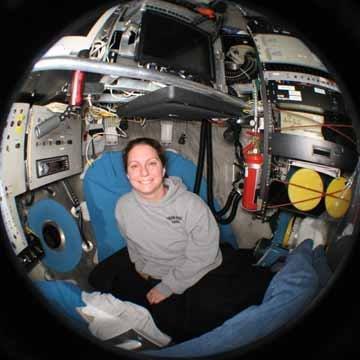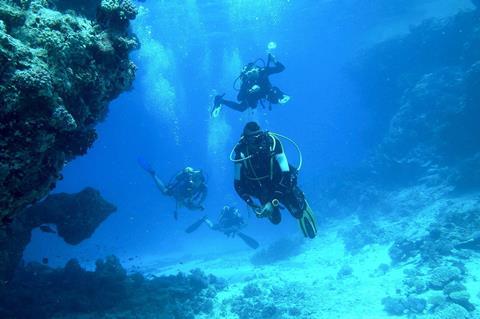All too often we go about our days in science forgetting what other people’s journeys are like - so let’s fight for belonging.
Would you go on an oceanographic cruise while pregnant? This was the thought on my mind as I neared the end of my postdoctoral time.
I found out I was pregnant immediately prior to a dive in Alvin. I felt safe, it was very early, and so my fetus and I dove to the bottom of the ocean and I only minorly annoyed my dive partners with my seemingly incessant (pregnant) need to pee.

Making this choice, to sail and dive while pregnant, was a minor challenge placed in front of me on my path in science. While not the only challenge, it stands out as one of the first times I knew I was facing something my male colleagues would never have to. How often do we go about our days in science forgetting what other’s journeys are like day to day?
Message of unity
“One ocean, one climate, one future – together” is the tag line of the 2023 World Ocean Day. This message of unity and inclusion needs to echo across ocean sciences, which is still one of the least diverse scientific disciplines. Despite widespread attention to the barriers faced and felt by historically overlooked groups, progress still needs to be made in diversifying the pool of talent entering into marine science.
In recent years in the US, only 1.95% of graduates in Earth and Ocean Sciences were Black. Testing requirements hamper the movement of international students, creating hurdles for advancement.
Racism and sexism are all too common in academia, particularly in Earth and Ocean Sciences. Historically excluded groups experience increased harassment and report opting out of activities that would enhance their careers.
Havens for scientists
Thankfully, institutions are on the rise such as Black in Marine Science, which aims to network and support marine scientists of color. Additionally, engagement programs such as Black Girls Dive Foundation exist to support young scientist’s interests in marine science and conservation.
Alongside these programs, the Black Microbiologists Association works to raise the fellowship and attention to Black microbiologists and support their early career efforts. Groups such as the Society for Advancement of Chicanos/Hispanics & Native Americans in Science (SACNAS) have become havens for scientists of color, welcoming of all and making sure that those historically overlooked in STEM have the support they need.
To truly support the idea of “one ocean, one climate, one future – together”, we must support our colleagues in their efforts to network and support each other. In addition to these developing organizations, we can all take inward looks at the way our institutions work, making change when able to become more inclusive and supportive.

We need to self-reflect on our actions and biases, and do the work ourselves, instead of putting the burden on already burdened communities. We also need to work on our inclusive efforts, making sure opportunities are given equally and doors remain open for all.
Working together
As a microbiologist, I hope that my view on the world is one that allows me to truly consider one future. I know that bacteria, archaea, viruses and eukaryotes all need to work together to make our one ocean function. I can study the symbioses that are distributed throughout biology and particularly in the ocean, and know that our ocean communities are truly stronger together.
If only the researchers of these systems would bring their lessons to life on dry land. As Dr. Beronda Montgomery has so eloquently expressed, we, as microbiologists claim to understand the phenomenon of unculturable bacteria, so we must not express surprise that STEM fields promote scientists that chose not to multiply in these arenas.
Even if some arenas choose to neglect emphasis on change, we can work to insure that those around us are treated fairly and equitably. We must remain resolute to fight for diversity, inclusion and belonging in our sciences, and in our communities.







No comments yet